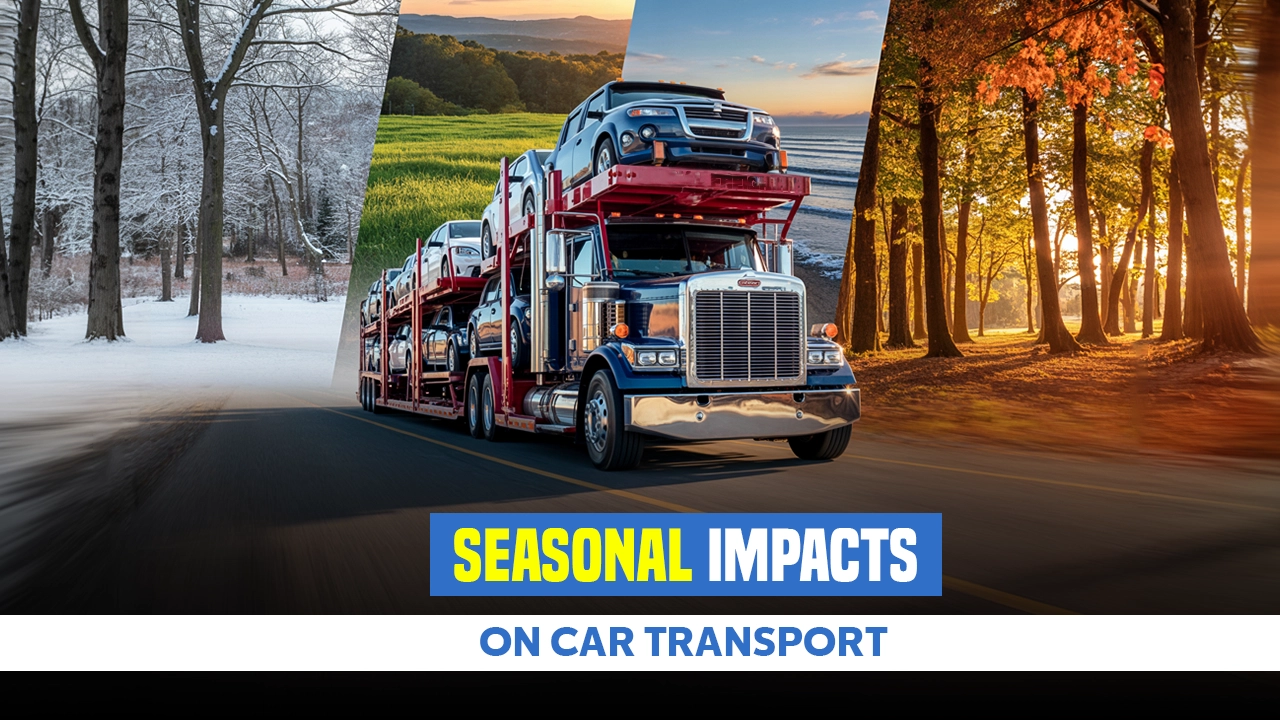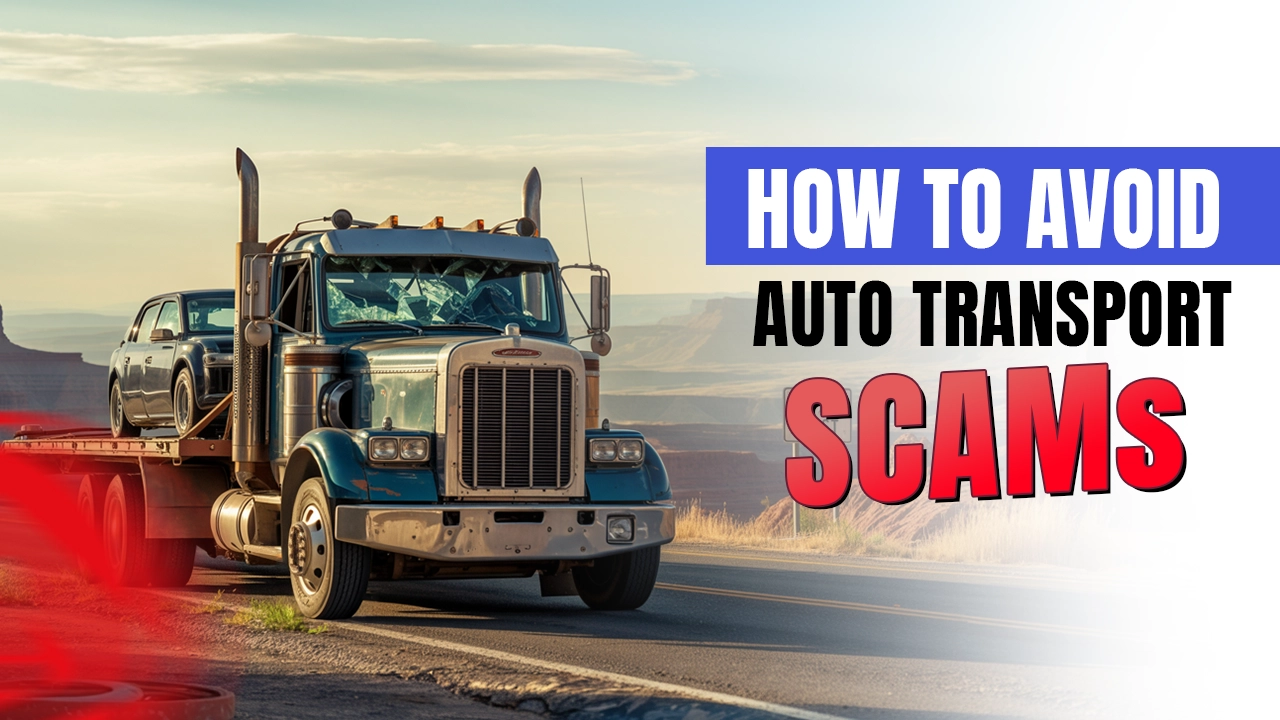Vermont Car Shipping: Costs, Key Routes & Recommended Companies
Turn Vermont Car Shipping Stress Into Success
Shipping a car to or from Vermont might seem stressful, but it can actually be a smooth and easy process if you plan ahead and work with the right transport company. At A4 Auto Transport we’ve guided countless customers through Vermont’s unique challenges, from winding mountain roads to snowy winter conditions.
For Vermont car shipping, choosing a company experienced with the state’s regulations is key. Costs generally range from $600 to $1,400, depending on factors like distance, transport type, and the time of year.
Our Featured Partner

AutoStar Transport Express
18+
Years Exp.
#1
In California
100%
Insured
Expert Team Hotline
954-250-5115MC License
#600908
What Are the Key Steps for Shipping a Car To or From Vermont?
Here’s a clear breakdown of the process to help make your shipment smooth and stress-free:
Request Quotes and Compare Options
Start by requesting quotes from multiple reputable car shipping companies that serve Vermont. Compare open, enclosed, and door-to-door transport services to see which best fits your needs. Learn how to obtain and compare car shipping quotes .
Choose a Reliable Vermont Car Shipping Company
Select a licensed and insured carrier (or broker) with experience handling Vermont’s rural roads, mountainous terrain, and seasonal weather challenges. Local knowledge is especially important if you live in areas with limited accessibility.
Secure Booking and Payment
Once you’ve chosen a company, your shipment will be booked after a carrier is assigned. Many providers require payment only after confirmation, which helps ensure reliability and transparency.
Gather Necessary Documents
Prepare the required paperwork, which typically includes the vehicle title, current registration, valid photo ID, and the Bill of Lading Having these ready avoids delays during pickup.
Recommended: Check out the car shipping documents.
Prepare Your Vehicle for Transport
Wash your car for inspection, remove personal belongings, disable alarms, and make sure fluid levels, brakes, and tires are in good condition. Take dated photos to record your vehicle’s condition before pickup.
Vehicle Pickup and Delivery
Depending on accessibility, the carrier can pick up your vehicle at your home (door-to-door) or at a nearby terminal. Vermont’s narrow rural roads or winter conditions may require flexibility with meeting points.
Final Inspection Upon Delivery
When your car arrives, carefully inspect it alongside the carrier. Compare the condition against your pre-shipment photos and note any issues on the Bill of Lading before signing. Consider exploring ways to ship a car.
State-to-State Car Shipping
Routes To and From Vermont: Essential Details
Shipping a car from another state to Vermont, and from Vermont to other states, requires careful planning and understanding of route-specific challenges. We recommend you read all the details below, which can help you save time, and avoid delays.
This route is popular for long-distance relocations and cross-country moves. Vehicles shipped from Vermont to California often require careful scheduling due to the distance and multiple state regulations.
Typical Cost
$1,400–$1,900
Average Delivery Time
7–10 days
Shipping from California to Vermont involves coordinating cross-country logistics, including weather delays in northern states. It’s ideal for buyers or families moving to the East Coast.
Average Cost
$1,500–$2,000
Delivery Time
7–10 days
This route sees seasonal spikes, especially for snowbirds relocating south for winter. Planning ahead helps secure competitive rates and timely delivery.
Cost Range
$1,000–$1,400
Transit Time
5–7 days
Returning vehicles from Florida to Vermont requires careful timing in winter months due to possible weather delays. Enclosed carriers are highly recommended for added protection.
Cost Range
$1,050–$1,450
Delivery Time
5–7 days
This long-haul route is common for job relocations or interstate sales. Vehicles may pass through multiple states, so carrier experience is key.
Average Cost
$1,100–$1,600
Estimated Time
5–8 days
Transporting vehicles from Texas back to Vermont is used by families, students, and military personnel. Planning for seasonal weather is important to avoid delays.
Cost Range
$1,150–$1,650
Delivery Time
5–8 days
A mid-distance route often used for Midwest relocations, dealership transfers, and student moves. Scheduling around busy seasons can help reduce costs.
Cost Range
$800–$1,100
Delivery Time
3–5 days
This route is frequently used for business relocations, online vehicle purchases, and college students returning home. Careful planning ensures timely delivery.
Cost Range
$850–$1,150
Estimated Delivery
3–5 days
Disclaimer: The prices and delivery times are estimates and may vary based on different factors.
Vermont Car Shipping Costs & Transit Times
Below is a breakdown of estimated costs and average transit times for common Vermont car shipping routes based on distance and carrier type.
| Route Category | Distance Range (miles) | Carrier Type | Cost Estimate (USD) | Average Transit Time | Nearby States |
|---|---|---|---|---|---|
| 0 – 500 | 0 – 500 | Open Carrier | $300 – $600 | 1 to 3 days | Northeast & Mid-Atlantic |
| 500 – 1,000 | 500 – 1,000 | Open / Enclosed Option | $700 – $1,200 | 3 to 5 days | Southeast |
| 1,000 – 1,500 | 1,000 – 1,500 | Open / Enclosed Option | $1,100 – $1,500 | 5 to 7 days | Midwest |
| 1,200 – 1,800 | 1,200 – 1,800 | Open Carrier | $1,300 – $1,700 | 5 to 8 days | South & Central States |
| 1,500 – 2,200 | 1,500 – 2,200 | Open / Enclosed Option | $1,400 – $1,900 | 7 to 10 days | West Coast |
| 2,500 – 3,200 | 2,500 – 3,200 | Open + Enclosed / Expedited | $1,800 – $2,300+ | 9 to 14 days | — |
Disclaimer: These prices and delivery times are estimates and may vary based on factors. Always request a personalized quote from the best car shipping companies.
Factors Affecting Car Shipping Costs in Vermont
Despite common factors like vehicle size, type, distance traveled, and transport method, there are some specific considerations that can influence car shipping costs in Vermont, and they’re often overlooked.
Mountainous Terrain and Road Conditions
Vermont’s hilly and mountainous regions, especially around the Green Mountains, require careful navigation. Steep grades, narrow roads, and winding turns can increase transit difficulty and insurance costs.
Winter Weather Challenges
Heavy snow, icy roads, and occasional road closures in Vermont winters can delay shipments or require specialized carriers equipped for snowy conditions.
Rural and Remote Locations
Many Vermont towns are small and scattered. Rural pickups or deliveries often involve longer detours, increasing fuel and labor costs.
Seasonal Traffic Near Colleges and Ski Resorts
Shipping around Burlington, Middlebury, or popular ski resorts during peak seasons can cause delays, higher demand, and slightly increased pricing.
Limited Carrier Availability
Compared to more populous states, fewer carriers operate regularly in Vermont. Limited options can reduce competitive pricing and lead to higher rates on certain routes.
Bridge and Route Restrictions
Certain bridges and state-maintained roads have weight or vehicle type restrictions, which may require detours or specialized equipment, affecting shipping costs.
What Is the Cheapest Way to Ship a Car in Vermont?
The most affordable way to ship a car in Vermont is by using open carrier car transport. This method involves your vehicle being loaded onto an open-air trailer along with several others, helping to reduce the overall cost. It’s safe and widely used for standard vehicles.
To save even more, try booking early, choosing terminal-to-terminal service if available, and shipping during off-peak seasons when demand is lower.
Are There Car Shipping Services Available in Rural Vermont Towns?
Yes, many car shipping companies offer services to rural areas throughout Vermont, including regions like the Northeast Kingdom, southern mountain towns, and small farming communities.
While access may be more limited than in urban areas like Burlington or Montpelier, door-to-door delivery is still possible in most locations. If road access is difficult, carriers may coordinate a nearby meeting point. Flexibility with pickup and delivery times is often key in rural shipping.
What’s the Best Time of Year to Ship a Car From Vermont?
Yes, many car shipping companies offer services to rural areas throughout Vermont, including regions like the Northeast Kingdom, southern mountain towns, and small farming communities.
The ideal time to ship a car from Vermont is between late spring and early fall. During these months, the weather is more predictable, roads are clearer, and carrier availability is higher, especially helpful in a state with challenging winter conditions. While winter shipping is still possible, it can involve delays due to snow or ice, and often requires enclosed transport for added protection. Booking in advance is recommended no matter the season.
Do Seasonal Changes Affect Vermont Car Shipping?
Yes, Vermont’s weather has a major impact on car shipping schedules, pricing, and carrier availability.
- Winter (Dec–Feb): Snow, ice, and road closures can delay shipments; fewer carriers may operate.
- Spring (Mar–May): Milder weather improves reliability, but demand rises during spring moves.
- Summer (Jun–Aug): Peak season with high demand; prices may increase, but service is faster.
- Fall (Sep–Nov): Early fall is ideal, but late fall can bring early snow, affecting timing.
- Carrier Preferences: Enclosed transport is more common in winter due to harsh conditions.
- Plan Ahead: Booking 2–4 weeks in advance is smart during peak or unpredictable seasons.

Can You Ship Your Car From Vermont During the Winter Months?
Yes, you can ship your car from Vermont in winter, but you should be prepared for possible delays due to snow, ice, and reduced carrier availability. Enclosed transport is highly recommended to protect your vehicle from harsh weather and road salt. Booking early is also wise during the winter season, especially around the holidays.
Is It Safe to Ship a Car Through Vermont’s Mountain Roads?
Safe Navigation
carriers are experienced in navigating Vermont’s mountainous terrain.
Weather Awareness
snow and fog in higher elevations can cause slight delays.
Professional Drivers
use well-maintained equipment and plan routes based on road conditions.
Are Permits or Inspections Required to Ship a Car Out of Vermont?
No special permits or state inspections are required to ship a personal vehicle out of Vermont. However, the car must be in legal condition to travel—this means it should have a valid title, registration, and be free of major mechanical issues unless you’re using a non-operable vehicle service.
Can You Ship a Vehicle From Vermont to Canada or Vice Versa?
Yes, vehicle shipping between Vermont and Canada is possible but considered international transport.
- Requires customs declarations and proof of ownership (e.g., vehicle title, bill of sale).
- A valid photo ID and completed vehicle export/import forms are necessary.
- Broker services may be required to assist with border paperwork and clearance.
- Longer transit times should be expected due to customs inspections and formalities.
- It’s best to work with a carrier experienced in U.S.–Canada vehicle shipping for a smooth process.
How Are Shipping Services Affected by Vermont’s Mud Season in Spring?
- Mud season in Vermont occurs during March and April, causing soft, muddy road conditions.
- Carriers may avoid unpaved or rural routes that become impassable due to melting snow and rain.
- Pickup and delivery locations may need to be adjusted to nearby paved or accessible areas.
- Limited scheduling is possible as fewer carriers operate in difficult terrain during this period.
- It’s important to plan ahead and communicate with your transporter about road accessibility in your area.
Are There Any State-Specific Regulations for Transporting Electric or Hybrid Vehicles From Vermont?
Vermont does not have any unique state-level regulations that specifically restrict or complicate the transport of electric or hybrid vehicles. However, carriers must follow federal transport safety standards for lithium-ion batteries, which power most EVs.
It’s important to inform your shipping company ahead of time if your vehicle is electric so they can take proper precautions, such as ensuring the battery is partially charged and securely disabled for transport.
What are Vermont DOT Regulations for Auto Transport Companies?
USDOT Numbers
All carriers operating in Vermont must maintain valid USDOT numbers and Motor Carrier (MC) authority to legally transport vehicles.
CDL Requirements
Drivers must hold the proper Commercial Driver’s License (CDL) for the type and weight of vehicle they are hauling.
Weight Limits
Vermont enforces weight limits on highways, with stricter restrictions on secondary roads and bridges, especially in the spring when thawing can weaken road surfaces.
Truck Routes
Carriers must follow designated truck routes in urban areas like Burlington, Montpelier, and Rutland, and avoid roads unsuitable for heavy or oversized vehicles.
Safety Inspections
Carrier vehicles are subject to regular inspections, and drivers must maintain accurate logbooks to comply with state safety regulations.
Mountain & Rural Considerations
Shipping to Vermont’s mountainous or remote areas may require specialized equipment or routing, particularly for areas along the Green Mountains or narrow rural roads.
How Can You Avoid Auto Transport Scams in Vermont?
While most Vermont auto transport companies are professional and reliable, some bad actors exist. To protect yourself:
- Always verify that the company is licensed, insured, and has proper USDOT authority.
- Avoid paying large deposits upfront or responding to unusually low quotes.
- Watch for red flags such as poor communication, no physical business address, or pressure tactics to lock in your shipment quickly.
For extra safety, explore our guide on ways to avoid auto transport scams , as the state’s rural locations and seasonal traffic can sometimes make customers more vulnerable to dishonest carriers.

Is Vermont’s Rural Infrastructure Challenging for Large Vehicle Carriers?
Yes, Vermont’s rural infrastructure can present logistical challenges for large car carriers. Many back roads in the state are narrow, winding, or unpaved, especially in the Northeast Kingdom and mountainous areas.
In such cases, carriers may request an alternate pickup or drop-off location near a main road or town center to ensure safe access. Planning ahead and staying flexible with logistics helps ensure smooth service in remote areas.
Recommended Car Shipping Companies for Vermont
We’ve researched the top auto transport companies, and based on that research, we confidently recommend AutoStar Transport Express:
AutoStar Transport Express

AutoStar Transport Express leads the Vermont car shipping market with unmatched reliability, top-tier customer service, and flexible transport solutions. Their transparent pricing sets them apart as the top choice.
We highlight AutoStar Transport Express as our top recommended company. Other companies are kept anonymous. Always request multiple quotes to compare services and pricing.
Conclusion
When transporting your vehicle to or from the Green Mountain State, working with trusted Vermont car shipping companies ensures a smooth and stress-free experience. From navigating rural roads and seasonal weather to offering a range of transport options, reputable providers help you move your vehicle safely and affordably.
FAQs
Can I track my vehicle shipment in real-time while shipping in Vermont?
How do Vermont car shipping companies handle vehicle insurance during transport?
Are there size or weight restrictions for vehicles shipped to or from Vermont?
What happens if my Vermont car shipment is delayed due to weather or road closures?
Can I ship non-operational vehicles to or from Vermont?

a4AutoTransport is a group of auto transport researchers and experts that comes in handy for anyone who wants to move their car/vehicle without putting extra miles on the odometer. At a4AutoTransport, We researched over a hundred car shipping companies, interviewed real customers and industry leaders, and collected nearly 500 quotes to find the nation’s best auto transport companies. With our combined 5 years of industry experience and research, we’ll help you find the right car shipper for your budget.
